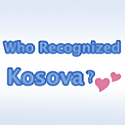Well folks, I was finally allowed entry into Nigeria. Despite the problems that I had beforehand relating to my visa, I have absolutely great memories of this country and its people. Despite my writings and my preconceptions, I have been pleasantly surprised by the people of Nigeria. Many times, we tend to label people or a country with a red mark before we know about them firsthand. Once those people receive a red mark, it is often hard to change our minds about them and remove the negative label.
My dear friends who have been reading my writings, I am here to tell you something very important about Nigeria and its people. During my three day observations and experiences in this great nation, I have realized that Nigerians are wonderful people and that the capital city of Abuja is a wonderful capital, much like any other city that you would find in the mid-west United States or France.
Abuja looks like its infrastructure has been well planned, having nice roads, tall business buildings, nice apartment buildings, etc. Everywhere I could see, it looks like the capital is a booming place. It is also one of the cleanest places that I have ever visited. On many occasions, I felt like I was right in the heart of the US. The best part of this city, though, is that for the first time in several weeks, my stomach has not been upset. For two days in a row, I was allowed the comfort of not having to deal with those kinds of interruptions to our mission.
The people here in Nigeria are very friendly and courteous. They all thank you and try to make you feel comfortable in all situations. It reminds me again, that I am one of the most fortunate individuals on the planet. I have been exposed to so many amazing things in my lifetime that I have learned many times that the principles and values of all human beings are the same, no matter where you might be born or what situation you are having in life. Though we don’t seem to have a choice in where we are born (with our location being more of a characteristic of nature and human evolution), that does not mean that we want to be labeled based on where they live. Most people, I have learned, have become victimized by their dysfunctional government systems. Many times, it is not by individual choice or will that people find ourselves in the middle of a bad situation. Because people are often at the mercy of their government, ordinary people are usually the ones that have to pay for the good or bad consequences of decisions made by their leaders. Rather than everyone being different based on who where they live or who their government is, it is more like we are all similar in our beliefs and values. When you get to the bottom of things, we all want the same thing – to live a good life, to feed our families and, most of all, to be respected by other human beings. I am really glad that I did not listen to all of the people who advised me to bypass Nigeria.
Yes, Nigeria has it’s share of problems alright. Their human rights record has been poor at all levels of government, they have their share of organized crime and it has been rumored that their elections have not always been fair. But let’s not forget that it is very rare nowadays to find any country that is problem free. Even the safest places on earth have their share of problems.
Another thing that we should not forget is that Nigeria is one of the biggest countries in Africa. It certainly is the highest populated country on the continent and is the eight most populated country in the world. Though English is the official language, many people do not speak it (especially in the rural areas). There are over 250 ethnic groups here and over 520 languages rumored to be spoken throughout the country, so unless you are a member of the ruling elite or live in one of the larger cities you would not have access to learning it.
Finally, it is also important for us to remember the role that Nigeria plays in the bigger world. Because of the oil boom in the 1970’s, Nigeria has been a key player in the international oil industry. Unfortunately, like Equatorial-Guinea, this means that the country has forsaken its traditional ways and instead has come to heavily rely on income made from the oil industry. Not to worry though, as Nigeria is considered to be the fastest growing economy in the world and the country has maintained strong ties with the United States since it began to supply the US with some of its oil. Even more, Nigeria has a lot of pull with the more local African countries. It was a founding member of the Organization for African Unity (now called the African Union) which includes 53 African states. This country has a tremendous influence in West Africa and Africa on the whole. Because of this, it is very important to get our message out in this country. If Nigeria were to officially recognize our independence, it is likely that it would create a domino effect and that many other countries down here would jump on board and choose to recognize us also.
In regards to our mission, which is the whole purpose of that I am visiting this country at all, I didn’t get off to the best start after landing here. I will say though, that after a few days of working and being driven around by my great taxi driver, Mr. John Wsyz, I have been able to look back and see that I actually was able to be very productive and successful here. For one thing, I have to admit to you all that I am often times very impatient and want to conquer the world as fast as I can. I always seemed to be slowed down by the ‘real’ world though because my goals and the pace that I want to go is always way faster than everyone else. Having said that, it is impossible for me to get things accomplished in the amount of time that I expect, so I’m starting to realize that it’s probably me that is the problem. All I wish for most days is to have a magic wand in my hand that I could wave over each country so that Kosovo would be exposed worldwide in the most prestigious and respected way. But I keep forgetting that the planet is extremely big and slow, despite my internal drive to treat our planet like a little soccer ball or basketball that you can just move around and do with as you wish.
Throughout my entire journey, I have met many important people and have learned a lot from each one of them. Here in Nigeria, I was able to meet some of the finest journalists with tons of experiences. Their knowledge of the world and their view of life were passed on to me and I will never forget our interaction.
Thanks to Mr. Chung Solomon M., with the ‘Daily Observer’. He conducted a great interview and showed a great sense of caring about Kosovo and our people. Another wonderful reporter that gave me an in-depth interview was Mr. Isaac Anumihe and his coworkers Ms. Zion Zadok and Mr. Ubons Ukpons. Mr. Onyebuchi Ezigbo and his boss Patrick Ugeh with the newspaper ‘This Day’ were also very nice and professional. The team at The Vanguard newspaper, the Abuja Bureau Chief, Mr. Emma Ujah was another personality that I won’t soon forget. He just kept pushing his journalist to ask all of the questions necessary to complete a high quality interview so that the write up would show extreme dedication to learning more about our cause. Mr. Emman Ovuakporie, the journalist who completed the actual interview was very knowledgeable already about our history during the 1980’s and our dark decade during the 1990’s.
The most amazing media experience so far though, was to encounter a newspaper that was named after my profession. The ‘Nigerian Pilot’ is a well known daily newspaper here in Nigeria. They also have a magazine known as ‘Nigerian News World Magazine’. The great team here is very professional. They have state of the art technologies and a wonderful conference room where you could actually hold a presidential meeting or a press conference if you wanted to. Mr. Olu Akinboyewa had the greatest personality. He was very detailed and meticulous in his interview and took a lot of pride in his work. This experience, to have been interviewed for a newspaper called the Pilot, was something that will always be remembered.
Thank you to the team at ITV who also showed care and professionalism. The senior reporter, Mr. Ene Okon showed great interest in our country and our people. Another very professional team was to be found at ASO Radio Abuja 93.5FM. Thanks to their boss, Mr. Ali Abdullahi and his employees and managers. The news manager, Mrs. Lovette Ilobi taught me a lot during the few minutes that I was able to spend with her. Finally, the two young ladies who actually completed the interview, Ms. Joyce Jackson and Ms. Loretta Ugonabo.
Nigeria’s Ministry of foreign Affairs were very receptive. The Director of Protocol guided me to the Director of Central and Eastern European Division, Mr. Charles Ojukwu an older gentleman. He was very calm and welcoming and we ended up spending more than an hour discussing the issue of Kosovo and our independence. He asked me quite a few questions about our cause, including how many countries have recognized us already, who they were, how many were in Europe, etc. He just kept writing everything down so that he could have a briefing with the Minister himself. I was able to hand deliver Vlora Citaku’s letter to him and it was my sincere joy to have had this opportunity.
I will get tired of being able to deliver the stories of my people and my nation across the planet, though there have been many times where I might have forgotten this privilege for moment. It is so hard sometimes when I am struggling and suffering to keep a sense of what the larger purpose is. Because it does not have an immediate effect, I often have lost sight of the reality of my work. But after hearing of the impact that our mission will have for many years to come, I could not do a more honorable thing in my lifetime.
Thank you to all of the people who are a part of this mission and have become a part of my life. I could not do this without you. If it was not for everyone’s constant perseverance during all of my struggles, I would still be sitting somewhere in Central America. I am sure that my life will be given whatever meaning is deserves, but you cannot put a price on the small changes that I am making for the future of my people and our children. As my reporter friend Chung Solomon M. reminded me, no matter how things turn out, my children and loved ones will be the ones that will always be proud of my accomplishments.
For sure Nigeria will be one of the places that I will remember for the rest of my life. I will never forget the great hospitality of the people that I have met in this beautiful country. I wish lots of success to my new friends and may god bless Nigeria.




































































































































































